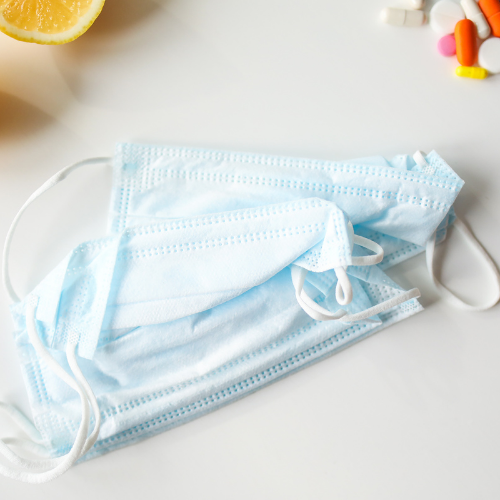
Sep 19 , 2020
5 Habits to Incorporate into Your Daily Routine for Better Health
The important thing is not linked to a strict diet or to imposing intense daily workouts but to focus on your general well-being.
Who says back to school says good resolutions and among the most common, the desire to take good care of your health. In this context, Sophie Medlin, lecturer in nutrition and dietetics at King's College London, published an article in the journal The Conversation discussing the easiest ways to get there. For science, the beginning of the year is indeed the opportune moment to take stock of the results of the latest scientific research, in order to understand what are the most effective attitudes to improve health. But beware: small goals achievable every day are better than large goals that are not respected, and therefore generate stress.
Eat more vegetables
This is the first advice to follow every day and already known, but the benefits of which should be remembered. Without advocating a switch to a completely vegan lifestyle, the nutritionist says that consuming fruits and vegetables every day has always been high on the list of positive things for the body. Researchers interest in the effects of diet on brain function is growing. A major review of the scientific literature published in 2018 showed that for each additional 100g of fruit and vegetables consumed, the risk of depression is reduced by 3%, ”she explains.
Their benefits are explained by the presence of vitamins and polyphenols such as flavonoids, phytochemicals naturally present in each fruit and vegetable. Numerous studies have shown that they are beneficial for the immune system and have an anti-inflammatory effect. So, "this means they could play a role in preventing the progression of many diseases - including diabetes, neurodegeneration, cancer, and cardiovascular disease.
Better sleep
Sleep is still a mysterious function, but it is decisive for our health. Memory and learning, metabolism, immunity… even if many hypotheses have to be confirmed, and if others will not fail to be formulated, it is perfectly established that sleep is crucial for many biological functions. So, it turns out that getting too much or too little sleep increases the risk of heart disease, diabetes and obesity. Normally constituted adults need six to nine hours of sleep per night.
Scientific work has shown that certain eating habits can help improve sleep and that, conversely, a good quality night's sleep can help improve the way we eat during the day. According to a study found in particular that partial sleep deprivation can increase people's appetite for caloric foods and therefore encourage them to consume more than 400 extra calories in a day. More generally, Inserm informs that numerous studies have highlighted the fact that poor sleep increases the risk of irritability, depressive symptoms, weight gain, hypertension or infection.
Learn how to manage stress
Modern life can be the source of enormous stress, which has an extremely negative effect on health. Whether acute or chronic, the risks to heart health are well known. The first produces an immediate effect on its functioning, which can trigger myocardial infarction, angina pectoris, cardiac arrhythmia, pulmonary embolism. And the second has a negative influence on cardiovascular risk factors like high blood pressure. This is why it is important that the steps you plan to take to improve your health in 2021 do not yet increase the burden of your existing stress. We can help you improve your mental and physical health.
This requires putting in place an effective plan for the years to come. The goal: To identify the origins of your stress and reduce the hormonal response it generates. The French Federation of Cardiology gives its recommendations which have proven their worth. Start by asking for help, in particular to understand where this stress comes from and learn to manage it. It is also advisable to adopt certain reflexes such as practicing at least 30 minutes of daily physical activity, drinking less coffee and alcohol, not smoking, eating balanced and allowing yourself moments of relaxation (relaxation, meditation, reading...)
Drink more water
Did you know that being only 1% dehydrated can affect your ability to concentrate? We all know that drinking water is great for our bodies. And this does not matter whether it is in tap or in bottle. More than 60% of an adult's body is water. Every day we lose some of it through urine, sweat and breathing. To maintain balance in the body, it is recommended to compensate for these losses by drinking 1 to 1.5 liters of water per day. The NHS which recommends drinking without thirst.
But, during a busy work day, you can forget to drink enough, and, as a result, become slightly dehydrated. “It can really hurt our performance and increase our stress. Make sure you always have a reusable water bottle with you, so you can refill regularly. Your urine should stay pale yellow throughout the day. », She specifies. Not without recommending not to fall into the trap of adding lemon wedges each time: lemon juice damages tooth enamel as much as sugary drinks.
Move as much as possible
According to the World Health Organization (WHO) sedentary lifestyle (lack of physical activity) is considered the fourth risk factor for death in the world. She also estimates that it is the main cause of 21 to 25% of breast or colon cancer, 27% of cases of diabetes and about 30% of cases of ischemic heart disease. Thus, physical exercise is not only useful for reducing waist circumference, balancing the amount of energy acquired and that expended, but also to reduce the risk of chronic diseases such as, in addition to cancer, hypertension. arterial disease, coronary heart disease or even stroke.
This effect could be due to the fact that the hormonal profiles of people who move very regularly improve. There is also strong evidence showing that exercise is a great way to improve mental health. At the start of a new year, it's not uncommon to think that you'd do well to hit a gym to make those abs visible by embracing the latest fad training regimen. But you don't necessarily have to go that far. In fact, anything that gets you off the couch will do wonders for your health. In short, the less time you spend sitting still, the better is.
Follow us on our official Instagram and Facebook pages for more updates.
